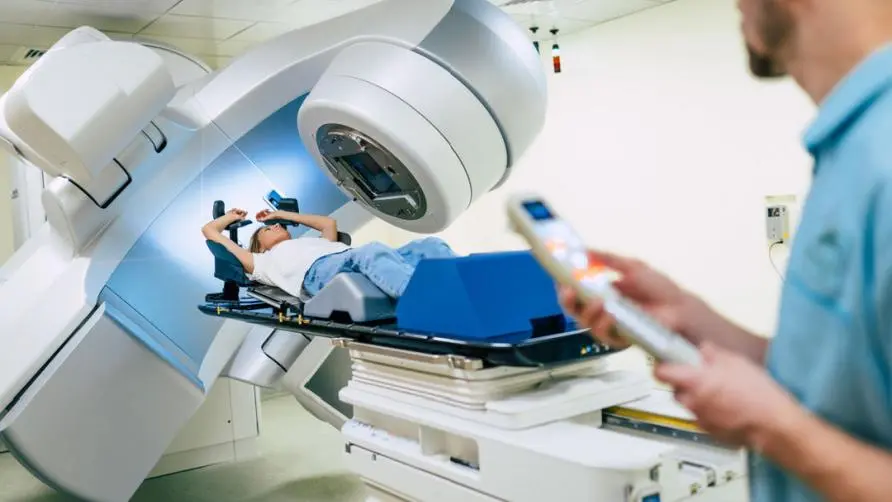Taking painkillers doesn't help! Why does "chronic pain" occur? Doctor: Tolerating it for more than 3 months may cause serious disaster

“Tolerating pain too much” is not only not beneficial to health, but can even easily lead to “chronic pain”, seriously affecting your daily life? Dr. Huang Yuhan from the Pain Treatment Center of Shin Kong Wu Huoshi Memorial Hospital said in an interview that Taiwanese people’s habit of dealing with pain is to take painkillers first, or simply endure the pain without seeking medical treatment. If it causes chronic pain that cannot be relieved in the long term, a pain specialist will need to intervene.
What is “chronic pain”? Is herpes zoster “neuralgia” painful when exposed to wind?
According to information published by the International Association for the Study of Pain (IASP), common chronic pain in the International Classification of Diseases includes cancer-related pain, neuropathic pain, secondary visceral pain, post-traumatic and post-operative pain, oral and facial pain and chronic secondary pain. Epidemic musculoskeletal pain, the above-mentioned conditions are summarized as “chronic secondary pain”, among which post-herpetic neuropathic pain caused by “herpes zoster” often makes patients miserable.
Dr. Huang Yuhan pointed out that the chance of herpes zoster patients suffering from post-herpetic neuralgia is about 10%, but as the patients get older, more than half of herpes zoster patients aged 60-75 will suffer from post-herpetic neuralgia. If the patient can seek medical treatment early and take antiviral drugs for 7-10 days, the pain can be effectively alleviated. However, if the patient is engaged in work that requires high concentration or the pain is unbearable, the less invasive “nerve block” can be considered, which can usually bring about good pain relief effects.
“However, there are also patients with herpes zoster who have been suffering from nerve pain for 10 years. They even refused to seek medical treatment until it hurts when they blow the wind!” The herpes zoster virus can easily affect the central nervous system and make it sensitive. It changes and leads to abnormalities in nerve conduction circuits, causing patients to suffer severe pain like electric shocks and fires when exposed to small stimuli such as wind blows or body touches, causing great distress to patients.
After suffering from shingles, do you need to be aware that there is still a risk of recurrence? Dr. Huang Yuhan reminded that the recurrence rate of herpes zoster within three years is 1%; after the course of the disease progresses to five or six years, it will increase to 7%. The current effective measure to prevent and treat shingles is to administer the “shingles” vaccine; it can help patients reduce recurrences by half and reduce the risk of post-herpetic neuralgia progressing into chronic pain by 67%.
Can cancer pain be treated only with morphine? Serious side effects may increase the burden on patients and their families
In addition to nerve pain problems, tumor growth causes compression of surrounding tissues, often causing discomfort and pain in cancer patients. Dr. Huang Yuhan explained that there are roughly three types of pain caused by cancer. First, the growth of the tumor will destroy surrounding tissues and organs, causing varying degrees of acute or chronic pain, depending on the specific circumstances of the tumor growth; second, cancer treatments such as chemotherapy, Radiotherapy or surgical treatment may cause varying degrees of pain; finally, the patient may have pain problems, and the presence of cancer will make the pain worse.
“If cancer cells have metastasized distally to the bones, the effect of surgery is limited, and radiotherapy or bone cement surgery can only be considered to reduce pain.” Dr. Huang Yuhan said that in the past, most cancer pain treatments were injections of morphine-based analgesics. However, morphine may cause serious side effects such as constipation and unconsciousness, which not only affects the patient’s quality of life, but also increases the care burden on the patient’s family.
Huang Yuhan pointed out that for the current treatment of cancer pain, “nerve block surgery” and “nerve destruction surgery” can be considered. The former is drug injection; the latter is to destroy sensory nerves through 90-degree high temperature or chemical agents. Both can be used. Lose the normal activity of nerves to achieve the purpose of blocking nerve signals.
Is chronic pain difficult to treat because Taiwanese people are “too pain-tolerant”? 2 major reasons behind medical exposure
Dr. Huang Yuhan explained that the condition assessment of patients with chronic pain will initially be clarified through the “Pain Index Scale”. Levels of 1-3 are mild pain, 4-6 are moderate pain, and 7-10 are severe pain. It is necessary to The pain physician intervened. For example, pain after gallbladder or appendectomy surgery, post-herpetic neuralgia, or pain caused by female childbirth, all fall into the category of severe pain.
The reason why chronic pain is so difficult to treat early is because Taiwanese people are “too pain-tolerant”? Dr. Huang Yuhan explained that unrelieved pain can easily continue to stimulate pain-conducting nerves, continuously transmitting abnormal signals to the spinal cord and brain, causing excessive reactions in the corresponding brain areas, leading to central nervous system sensitization. Interventional treatment at this time is often even worse than during an acute pain attack.
“There are roughly two reasons why Taiwanese people are accustomed to enduring pain: one is due to the repressed and tolerant national character of Asians; the other is the convenience of easy access to painkillers. Many patients in the clinic go to the pharmacy to buy painkillers and take them themselves, feeling that the pain is relieved. It’s not a big deal. In fact, just taking painkillers can often only “treat the symptoms”. If you don’t see a doctor to find the root cause of the pain, the chronic pain problem will become more difficult to treat!”
Are anxious and highly sensitive people more likely to suffer from chronic pain? How long does it take before you need to see a pain doctor?
To make matters worse, people who are prone to anxiety, tension, and high sensitivity are prone to chronic pain due to overstimulation of sympathetic nerves. Chronic pain in this type of people can easily affect sleep quality, cause insomnia, lead to depression, and even cause depression and anxiety. “Because patients are prone to anxiety and have difficulty falling asleep, they may take sleeping pills to help them fall asleep. In this case, Be concerned about their drug or alcohol abuse problems.”
If you feel that your pain has not been relieved for a long time, should you seek interventional treatment from a pain department? Huang Yuhan suggested that if pain occurs in a specific part and does not relieve for more than 3 months; or if the pain does not improve after one month of conservative treatment such as drugs, rehabilitation therapy, physical therapy (such as hot compress, electrotherapy), traditional Chinese medicine acupuncture, etc., you should seek medical advice. Go to the pain department immediately to clarify the condition.
“Modern people live at a faster pace. If you feel that your condition is progressing slowly, or you need to work or travel immediately, etc., you can discuss with your doctor a course of treatment that suits you and get rid of the haze of chronic pain as soon as possible!”
Further reading:




